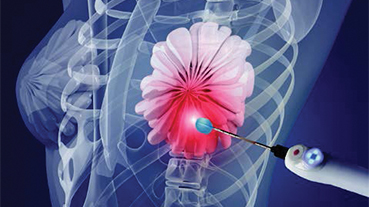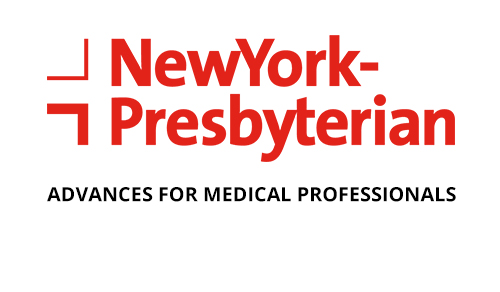Neoadjuvant Therapy in Breast Cancer: A New Raison D’être

Dr. Eleni Andreopoulou
“Human breast tumors are diverse in their natural history and in their responsiveness to therapy,” says Eleni Andreopoulou, MD. A medical oncologist and Director of the Breast Cancer Research Program at NewYork-Presbyterian/Weill Cornell Medical Center, Dr. Andreopoulou specializes in breast cancers and is an integral collaborator with clinicians and scientists who study the development of cancer cells from their initial, more simple existence to discretely defined breast cancer cell types. “The dynamic status of tumor biology diversity influences the phenotype and sensitivity to treatment, and ever-growing knowledge of the early stages of the disease provides fertile ground for the development of novel therapies.”
The past 50 years have seen an evolution in the use of neoadjuvant chemotherapy for breast cancer. In its early days, neoadjuvant therapy was indicated for patients with inoperable, locally advanced disease. It later evolved as a preoperative treatment to downstage the disease in order to facilitate breast conservation surgery. Today, neoadjuvant therapy offers a valuable research platform to tackle residual tumor – the most intrinsically hard-wired to invade, migrate, and metastasize. “This is a really meaningful component that has to be addressed if we’re talking about curing breast cancer,” says Dr. Andreopoulou, “and our final test to accomplish this is in the adjuvant setting.”
“Individuals with the same stage disease and similar pathological diagnosis can experience very different clinical courses,” adds Dr. Andreopoulou.
Drug development in the adjuvant setting for breast cancer typically has a very protracted timeline, and approvals for new drugs or regimens can take more than 10 years. According to Dr. Andreopoulou, the neoadjuvant therapy platform has the potential to accelerate the testing of new treatments, regimens, and agents. “This setting is gaining traction because it provides the opportunity to integrate biomarkers and surrogate endpoints into the process of care, allow rapid assessment of targeted therapeutics, and accelerate the development of effective therapy.”
Dr. Andreopoulou further notes that the approach offers the ability to obtain biospecimens that can serve as a baseline during the course of disease evolution. “This provides an opportunity for monitoring treatment response with serial biopsies up to and including the point of surgical excision if residual disease is present,” says Dr. Andreopoulou. “The clinical management in these recalcitrant tumors requires the focus of innovative research coupled with a commitment to translate findings into effective clinical practice, and this is what I am set to do as an academic oncologist. I work together with clinicians from all disciplines and scientists in the lab to address these problems.”
The Evolving Role of Neoadjuvant Therapy

Dr. Andreopoulou notes that the biospecimen acquisition process is so important. “By assessing the status of cell fate at multiple points of treatment and tracking the disease through its evolutionary lineage, we can interrogate the impact of cancer therapies – standard or novel, targeted, or investigational. Importantly, it supports the development of a library of personalized in vitro and in vivo models other than cancer cell lines that mimic the ecosystem of aggressive breast tumors. These models retain the principal characteristics of their donor tumor and are used for high throughput drug testing with the ultimate goal to fast-track the development of effective treatment broadening our curative reach. This model has been shown to be predictive of clinical outcomes.”
“This is important,” continues Dr. Andreopoulou. “This approach can also help our understanding as to why some patients respond poorly to chemotherapy; develop novel strategies to identify and select these patients in the clinic; and finally enroll patients in clinical trials to develop alternate precision medicine treatments which can afford us better survival results.”
“Standard neoadjuvant chemotherapy has served a proportion of breast cancer patients with aggressive biology well; however, the time is upon us to move toward implementation of molecular testing at diagnosis to define the genetic ‘fingerprint’ and accompanying molecular dependencies of the tumors we seek to eliminate.”
— Dr. Eleni Andreopoulou
Modern technology platforms, such as genomics, proteomics, circulating tumor cells, and minimally invasive functional and molecular imaging each has a potential role in accelerating the innovative direction taking place within the neoadjuvant setting on three fronts:
- improving the success rate and speed of drug development
- interrogating the consequences of therapeutic intervention
- providing unique insight into human disease biology
“Because of the strong relationship of response, especially pathologic complete response, to patient outcomes, neoadjuvant chemotherapy offers a valuable research platform to test new treatment agents and increase our understanding of breast cancer biology,” says Dr. Andreopoulou. “This, in turn, will lead to truly individualized therapy based on biologic and molecular parameters. Incorporating a biomarker-based selection process in the early phase clinical trials and integrating surrogate markers of outcome as pathologic complete response rate has the potential to accelerate anticancer drug development for the care of patients with high-risk biology such as triple-negative breast cancer.”
“The administration of the same chemotherapy before surgery in the neoadjuvant setting for newly diagnosed patients with early-stage disease is as safe and as effective as the administration of these therapies postoperatively,” adds Dr. Andreopoulou. “However, the patients with hormone receptor negative disease who will experience this pathologic complete response – eradication of the disease and all viable, invasive cancer cells from the breast and the lymph nodes – have more favorable outcomes in terms of survival. This is why this is considered to be one of the most reliable and early surrogates for a cure. In the pre-treatment setting, you can embrace different, innovative clinical trial designs as ‘adaptive’ with backbone standard chemotherapy and ‘window of opportunity’ with experimental treatment.”
Dr. Andreopoulou suggests that the greatest challenge faced by the oncology community is acceptance and commitment to changing current clinical practice. “Standard neoadjuvant chemotherapy has served a proportion of breast cancer patients with aggressive biology well; however, the time is upon us to move toward implementation of molecular testing at diagnosis to define the genetic ‘fingerprint’ and accompanying molecular dependencies of the tumors we seek to eliminate,” she says. “The presurgical and neoadjuvant setting is the testing platform for the next generation of oncology trials.”
Reference Articles
Cheng E, Ko D, Nguyen M, Moo TA, Andreopoulou E, Hoda SA, D’Alfonso TM. Residual pure intralymphatic breast carcinoma following neoadjuvant chemotherapy is indicative of poor clinical outcome, even in node-negative patients. The American Journal of Surgical Pathology. 2017 Sep;41(9):1275-82.
Andreopoulou E, Kelly CM, McDaid HM. Therapeutic advances and new directions for triple-negative breast cancer. Breast Care (Basel). 2017 Mar;12(1):21-28. Epub 2017 Feb 7. Review.
Andreopoulou E, Schweber SJ, Sparano JA, McDaid HM. Therapies for triple-negative breast cancer. Expert Opinion on Pharmacotherapy. 2015 May;16(7):983-98. Review.
Kalinsky K,Lim EA, Andreopoulou E, Desai AM, Wang A, Maurer MA, Crew KD, Greenlee H,Hibshoosh H, Sparano JA, Hershman DL. Pre-surgical evaluation of the AKT Inhibitor MK-2206 in patients with operable invasive breast cancer: New York Cancer Consortium Trial P8740. Journal of Clinical Oncology. 2013;31(suppl; abstr 560).
Andreopoulou E, Vigoda IS, Valero V, Hershman D et al. A phase I-II study of the farnesyl transferase inhibitor tipifarnib plus sequential weekly paclitaxel and doxorubicin-cyclophosphamide in inflammatory carcinoma and non-inflammatory estrogen-receptor positive carcinoma. Breast Cancer Research and Treatment. 2013 Oct;141(3):429-35.
Hatzis C, Pusztai L, Valero V, Booser DJ, Esserman L, Lluch A, Vidaurre T, Holmes F, Souchon E, Wang H, Martin M, Cotrina J, Gomez H, Hubbard R, Chacón JI, Ferrer-Lozano J, Dyer R, Buxton M, Gong Y, Wu Y, Ibrahim N, Andreopoulou E, et al. A genomic predictor of response and survival following taxane-anthracycline chemotherapy for invasive breast cancer. JAMA. 2011 May 11; 305(18):1873-81.
Juul N, Eklund AC, Li Q, Burrell R, Valero V, Andreopoulou E, et al. A functionally derived metagene predicts response to taxane-combination chemotherapy in primary breast cancer. Lancet Oncology. 2010 Apr;11(4):358-65.
Related Publications

Targeting Early Breast Cancers with Ablation Therapies

Ongoing Research in Early-Stage Invasive Breast Cancer Treatment





